28 House-Flipping Rules You Should Never Break

House flipping is the process of buying houses with the intention of reselling them quickly -- and at a healthy profit. Houses in areas with rising home values are ripe for flipping, especially if they can be bought at a steep discount and renovated to today's tastes.
Check Out: More Americans Can Afford To Buy a Home in These 20 Cities
Real Estate Agent: 6 Cities Where You Should Avoid Buying a Home This Summer
If you'd like to know the specifics of how to flip a house, start with these 28 rules of flipping houses that experts say you should never break.
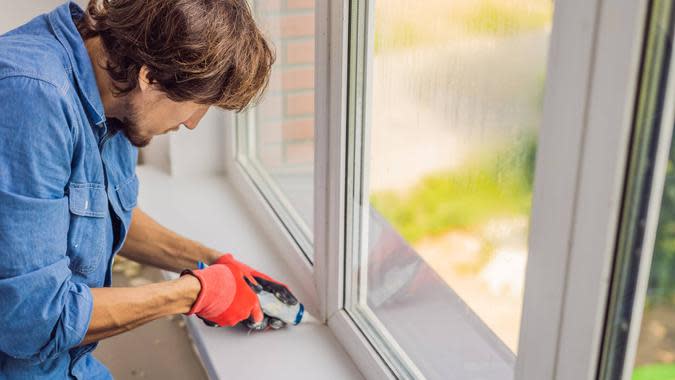
Stop Your Spending at 70% of the Home's Value
Matt Woodley, the founder of MoverFocus, is a strict adherent to the 70% rule when flipping houses, and he advises others never to break it.
"The 70% rule states that, after all the costs of purchasing and fixing the house are calculated -- including closing costs, replacing items within the house, the cost of the house itself and the labor needed for any repair -- you should not spend more than 70% of the anticipated value of the house," he said. "Real estate value does not always rise. Your costs in fixing up the house could end up being higher than anticipated. Make sure that your fix and flip doesn't end up costing you more than you can make from it."
Housing Market 2023: Is a Double-Digit Drop in Prices Coming?
$2,000 Quarter? Check Your Pockets Before You Use This 2004 Coin

Assess If There Are Bigger Fixes and If You Can Handle Them
When flipping houses, make sure that you have the properties assessed yourself.
"You should have the house inspected and any potential challenges identified," Woodley said. "Ideally, you want to flip a house with primarily cosmetic requirements, but that doesn't mean that you should only approach properties that merely need cosmetic repairs, especially if you have the skills to DIY or a team behind you that can offer you a solid estimate. In order to develop an understanding of what the property will need, however, make sure you take the time to assess and inspect it before making a purchase. Impulse buys can come back to haunt you later."
Real Estate Agents: Buy Property in These 5 States To Be Rich in 5 Years
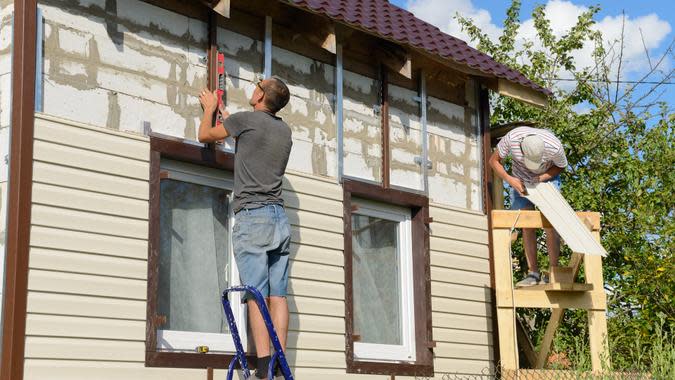
Don't Exceed Your Limits
This rule is especially important for house-flipping DIY people.
Woodley said: "Many people choose to fix and flip houses with the idea that they're going to do it themselves, perhaps working in their off hours to take care of necessary repairs. While that's a great way to decrease the money you'll need to invest in the property, it's also an excellent way to get in over your head. Make sure you know your limits, both when choosing a property and when handling those repairs. Having a solid team of professionals you can rely on to help with the details you can't handle can make it easier to get your house ready to go back on the market."
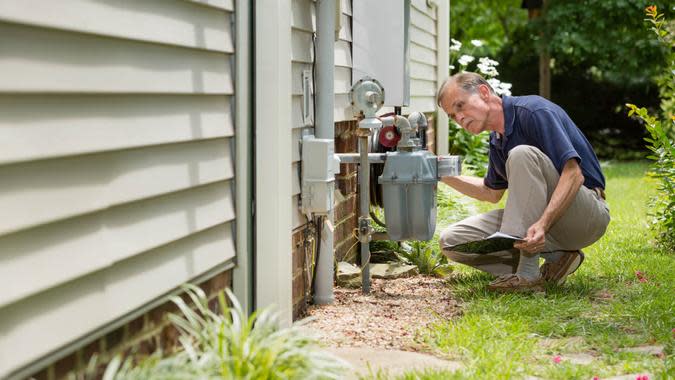
Always Get a Professional Home Inspection
A house might look solid, but problems could be lurking behind the walls. Part of knowing how to flip a house is knowing the value of a professional inspection, said Sacha Ferrandi, founder and principal of Texas Hard Money and Source Capital Funding.
"One of the biggest mistakes real estate investors make with fix-and-flip projects is failing to get a home inspection before buying a property," he said. "This is a general rule that should never be broken. Whether you're making huge renovations or minor ones, a home inspection is necessary. They can uncover any underlying problems you may not have known about if you didn't get the inspection. Things like foundation issues, structural damage, electrical issues and more can be extremely costly. If there are any problems discovered during the pre-inspection, you may be able to get the purchase price lowered."
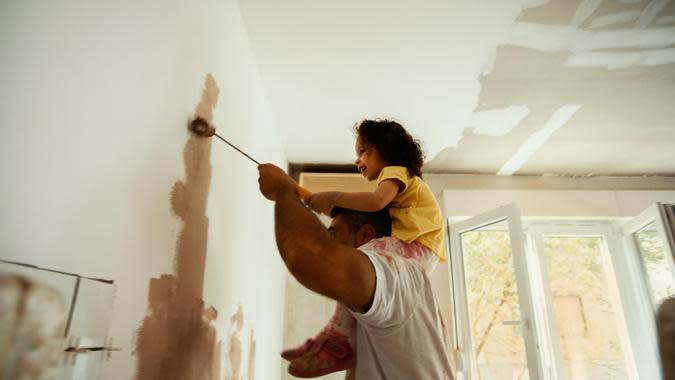
Don't Fall In Love With a Flip House
Some homes might have special appeal for you and inspire you to add a personal touch, but you need to stay neutral when you're flipping houses.
"You're renovating the home to appeal to the general market, so you must keep that in mind during the whole process. Breaking this general rule of thumb can decrease your chances of selling fast," Ferrandi said. "Take yourself out of the equation."
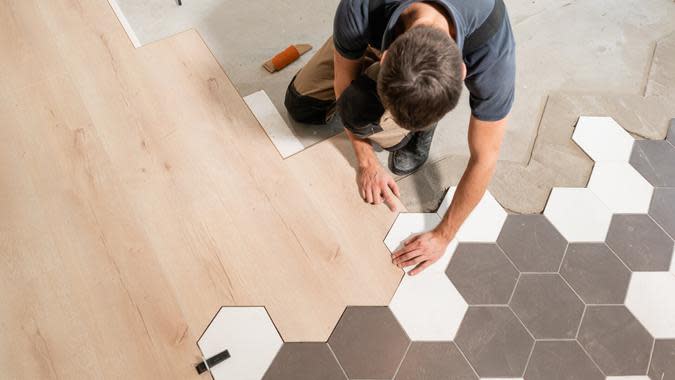
Don't Let Bells and Whistles Put You Over Budget
Flooring, countertop and cabinet styles come and go, and giving in to the temptation to make a home look like it was a set for the latest house-flipping show can destroy your budget.
"Home improvement and DIY shows sometimes give people a false sense of the time, skill and money that are needed to renovate a house," said Craig Russell, the CEO of The English Contractor & Remodeling Service, a contracting and building firm based in Cincinnati. "In flipping a house, time and money are everything, since the investment made in the purchase of the home and its improvements lead to the total return. Shiny new appliances, wood flooring and special details cost money, so those investments should only come after the flipper is certain that the roof and foundation are sound."
Cash App Borrow: How To Borrow Money on Cash App

Keep a Detailed Ledger of Flip-Related Costs
Flipping houses successfully requires attention to detail, both for the renovation itself and for the related record-keeping. Not only do thorough records keep you on budget, but they also ensure you won't be scrambling for the proper paperwork at tax time.
"Keep a detailed ledger of costs related to the flip," said Stan Mead of Summit Home Buyers in Salt Lake City. "You must be vigilant when tracking your expenses for each flip. Your accountant and the IRS will thank you later."

Don't Dwell On Microscopic Details
Getting a home ready for house flipping involves dozens of details, and it's easy to get caught in the minutia if you're not careful. Elements such as flooring or paint colors are highly visible and make a big difference to homebuyers, but smaller items don't carry that kind of impact.
Said Mead: "There are a million things to think about when flipping a house. If you find yourself obsessing for days on what toilet paper dispensers to use, you might fall behind schedule, which can result in going over budget, and you want to avoid those things at all costs."

Do Not Project Future Comps for Comparable Sales
House flippers don't have a crystal ball to predict where comparable sales will go in the future, and they can get into trouble if they try to guess on their own. Sticking to that rule prevents you from the effects of being overly optimistic.
Los Angeles real estate agent Jennifer Okhovat agreed. "I work with a lot of investors who are flipping houses. My number one rule is 'Do not project future comps for comparable sales.' Base all projections on the current market and properties selling near the subject property."

Don't Find Your Flips on Websites Such as Zillow
Zillow, Redfin and similar websites are brimming with postings of homes for sale, but they're probably not ideal tools for house flippers.
Logan Allec, a CPA and owner of personal finance site Money Done Right, said, "If you live in a hot area -- and in this market, where is it not hot? -- then don't put too much stock in finding your flip deal on Zillow or Redfin. Think about it: If a good potential flip was on Redfin, wouldn't somebody already have picked it up?"
Instead, he recommends getting creative to find the best deals, including sending out direct mailers to homeowners. "The hard truth is that great flip deals aren't going to just magically appear right under your nose," he said. "You're going to have to invest time or money, and probably both, to find a flip-worthy property."
Related: States With the Highest Property Taxes
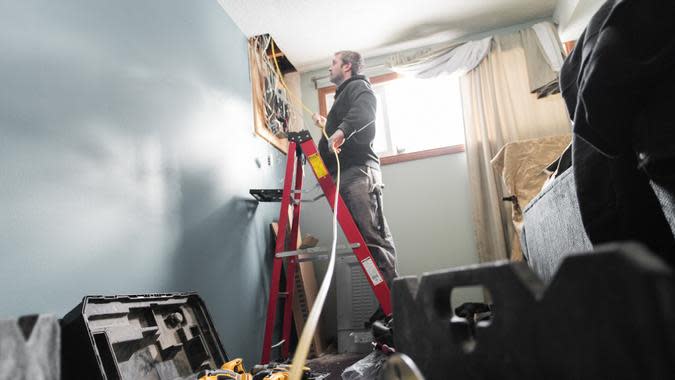
Never Ignore Your Numbers
Robert Taylor of The Real Estate Solutions Guy does house flipping in the Sacramento, California, area. He said flippers can't stretch beyond their established financial numbers.
"When one first gets started flipping houses, finding the right deal can seem impossible. You might even begin to question your numbers," he said. "When you do, you're setting yourself up for failure. If your numbers say you need to buy it for less than X dollars, then don't pay more than that, thinking you can cut back on the rehab. You'll rarely spend less on rehab than you estimate. If you try to cut back on your rehab, you'll probably end up with an inferior resale product and sell for less than you thought. There will always be another opportunity where your numbers will work."
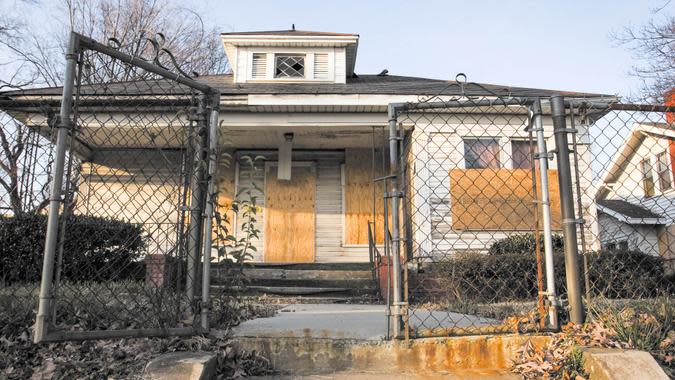
Don't Forget: Location Is Everything
The real estate mantra "location, location, location" is repeated often, and it applies to anyone flipping houses. Taylor said an undesirable location is the one thing you cannot repair.
"Houses in bad locations should just be skipped altogether," he said. "Bad roofs, old windows and dated kitchens can all be fixed. However, you won't be able to change busy streets or chase away the drug deals happening next door. Leave bad locations for someone else who thinks they can fix it. There's always a greater fool in real estate. You don't need to be that person."

Don't Try To Fix the Illogical
Homeowners sometimes make strange choices that make their property undesirable to everyone, and those who know how to flip a house know enough to stay away from those oddballs.
"When shopping to find your next flip project, you'll undoubtedly find some floor plans that are just plain stupid," Taylor said. "Sometimes owners build on to their home hoping to add value or more usable space. They may create bedrooms that you have to walk through another bedroom to get to, or they may build patchwork additions that can create a dysfunctional floor plan. Sometimes these can be fixed, but you probably won't be able to fix them within a reasonable budget. These homes are better left for another buyer."
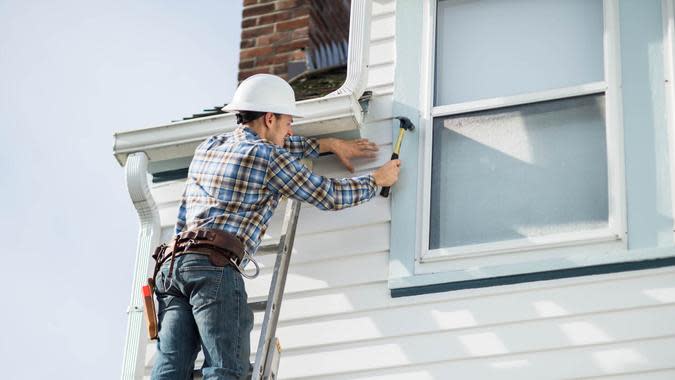
Have a Contingency Fund and Use It Wisely
Taylor advises those who flip a house to always insert a contingency amount into the rehab budget.
"Build in a 5 to 10 percent contingency factor for your rehab so you have some wiggle room for unexpected repairs or other cost increases," he said. However, he warned that just because you've allotted some extra money doesn't mean you should spend it too quickly.
"Never use your contingency funds for unnecessary upgrades unless you're on budget and close to completion," he cautioned. "Otherwise, you might get caught with additional surprise repairs."
I'm a Self-Made Millionaire: These Are the 6 Investments Everyone Should Make During an Economic Downturn
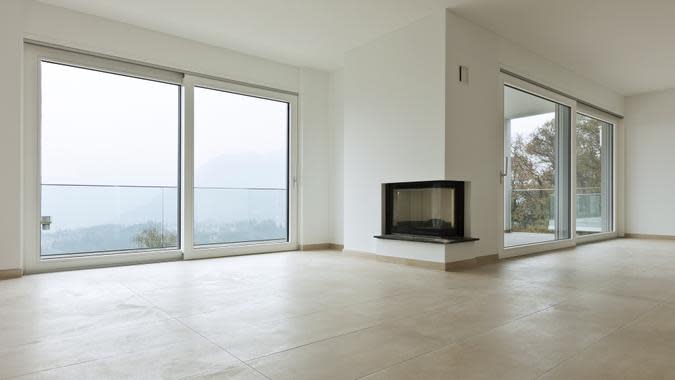
Always Stay Neutral With the Decor
Bold colors can make a statement in home decor, but it's best to leave that to the eventual homeowner when you're flipping houses.
Brad Pauly of Pauly Presley Realty in Austin, Texas, said this is what he tells clients: "Stay neutral. Stick with neutral colors and finishes. Let the new buyer of the home make the personal touches they want to make the house theirs." Otherwise, the unique decor that might appeal to a small subset of buyers could scare away the majority of people who can't picture the home as theirs.

Use an Interior Designer
Many people who know how to flip houses themselves plan on being "do it yourselfers," but Pauly said that interior decorating is best left to the professionals if you want to present the best product to prospective homebuyers -- and maybe even save a little money yourself.
"Not using a designer can be costly," he said. "Let a professional choose your finishes and colors to complete the look of your home. Not only do they get deals on finish items, but a good eye for finish can earn you a higher sale price."

Don't Forget the Landscaping
Curb appeal is a real thing, and people flipping houses must keep that in mind to attract buyers who might get scared off before they even step inside if they're confronted with an unattractive exterior. Fixing it simply might mean trimming overgrown trees and bushes and adding a splash of color with flowers, or it might require resodding a threadbare lawn.
"Too many times all the emphasis is put on the home and not the outside of the property," Pauly said. "A quality, yet affordable, thought to landscaping can go a long way."

Expect and Prepare For Unpleasant Surprises
House flipping rarely runs smoothly, even when you've done your due diligence with a home inspector and a thorough assessment of the property. Nathan Claire, founder of Buying Jax Homes in Jacksonville, Florida, agreed.
"It can be tempting to try and cut costs and keep your expenses as low as possible, so you can get better return on your flip," he said. "However, you have to be realistic and smart about the risks involved. There are a variety of things that can go wrong on a house rehab. A few examples being your appliances and furniture getting stolen while the home is vacant or faulty plumbing and electrical work. The list goes on and on. When flipping a house, make sure to set some money aside to cover these things. That way if a pipe busts or a floor caves in, you'll be covered and can still profit from your hard work. You should always plan for the best, but make sure to prepare for the worst as well."
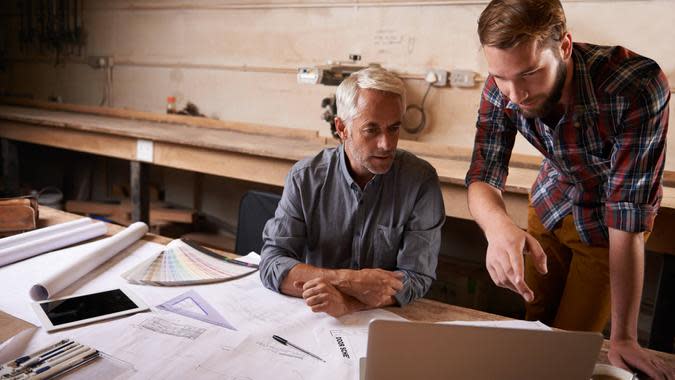
Don't Hire Family and Friends
You might envision flipping houses as a family affair, but things can go south quickly when you involve people who are close to you in your home rehab projects. Allyson Case Anderson, founder of Chicago-based residential general contractor Integro, said, "Don't hire your buddy. Keep your construction partners out of your family and close friends. This is a business; keep it professional so everyone on your team is making decisions based on their expertise and not their emotions."
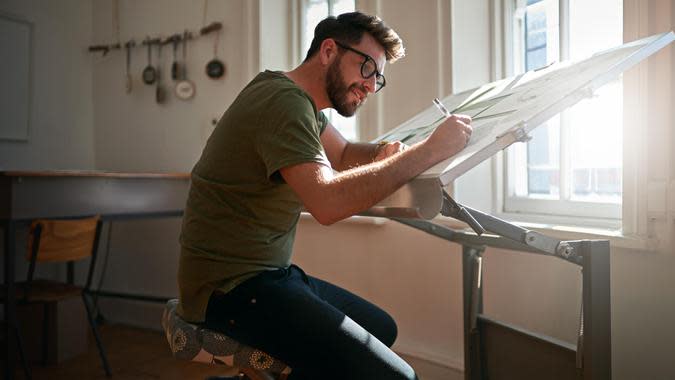
Get an Architect on Board
Often a property needs some layout changes to make it attractive. If your house-flipping project has that type of scope, you need to get an architect involved to ensure that your plans are workable and that they won't bring down the wrath of local building inspectors.
"Architects can help you foresee potential pitfalls with your design regarding code and functionality," Anderson said. "They can also provide a professional opinion on your design to keep your project marketable yet distinctly different to help you sell faster."
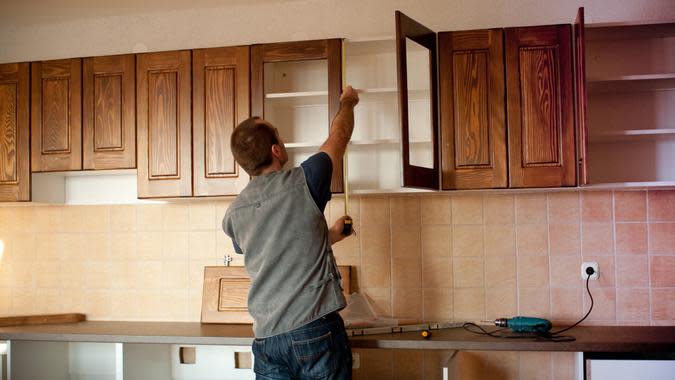
Don't Go the Cheap Route With Your Contractors
It's tempting to hire the lowest bidder when flipping houses, but that can lead to headaches when you're preparing a property to flip.
"Qualify your contractors. Don't go with the cheapest bid because they usually end up being the most expensive bid by the end of the project," Anderson said. "Scope your jobs correctly, get accurate bids and build a team you can trust. You want consistency of pricing from project to project, not cheapest pricing. This way, you can start developing credible ballparks for yourself when considering a flip as you do more projects."
Side Gig: Earn Up To $200/Hour With This Easy-To-Start Job, No College Degree Required

Don't Buy a House With Cigarette or Pet Odors
That house that formerly belonged to the neighborhood cat lady or the family of chain smokers might be up for sale at an attractive price, but Texas realtor/investor Benjamin Ross said it's not worth the hassle to prepare for house flipping.
"I don't buy homes with cigarette or pet odors," he said. "It is simply too difficult to remove the smell."
Even the nicest neutral decor won't win over buyers if they get a whiff of cat or dog urine or stale nicotine.
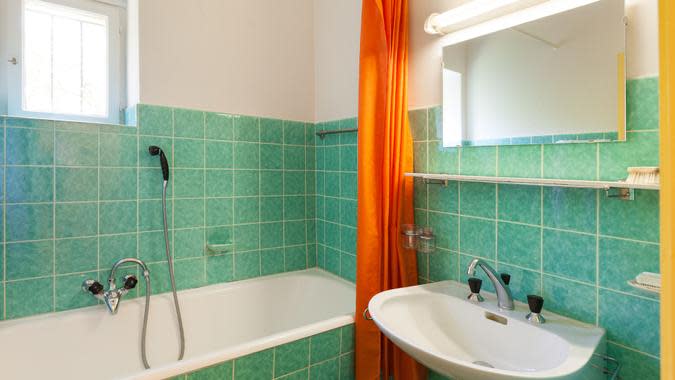
Don't Buy Houses With Only 1 Bathroom
In decades past, a single bathroom was standard, but today's buyers have expectations that family members won't have to stand in line to shower or get relief. Ross said he passes on flipping houses that have just one bathroom, even if they look good otherwise. "They are much harder to sell," he said, making it more difficult to get a fast return on your investment. Ross also prefers homes with at least three bedrooms because they're much more appealing to families.

Know Your After Repaired Value and Stick To It
Knowing your ARV, or After Repaired Value, is one of the basics when learning how to flip a house. Nick Disney of Sell My San Antonio House explained why.
"The ARV, or After Repaired Value, is the amount that you believe you can sell the house for after you have completed all the necessary repairs," he said. "This number can be calculated by looking at what other comparable houses in the same area have sold for in recent months. Too often flippers either believe that their house is worth way more than the comparable houses or they spend too much on repairs and increase the sales price in an attempt to make up the difference. When you overprice a house it will often sit on the market longer and therefore cost you more in the form of carrying costs and other expenses. Most of the time you will end up reducing the price to meet the original ARV anyway in order to get the house sold."

Pay Attention To Overlooked Location Details
It's common sense that an airport-adjacent home or one in the middle of the seedy side of town will be hard to sell, but good location isn't just about a good neighborhood or highly rated schools. Robert Barthelmess, managing partner at BGI Capital in Miami, said he pays attention to those things, but he also looks at smaller details that make a home's location appealing for house flipping.
"Another aspect that is gaining significance is ease of transportation. A centrally located property in close proximity to public transit is an added value," he said. "As part of your continued research, look into city and county plans, find out where new transit is being built or proposed, and search for properties in those vicinities."
I'm a Real Estate Agent: Buy Real Estate in These 10 Cities To Be Rich in 10 Years
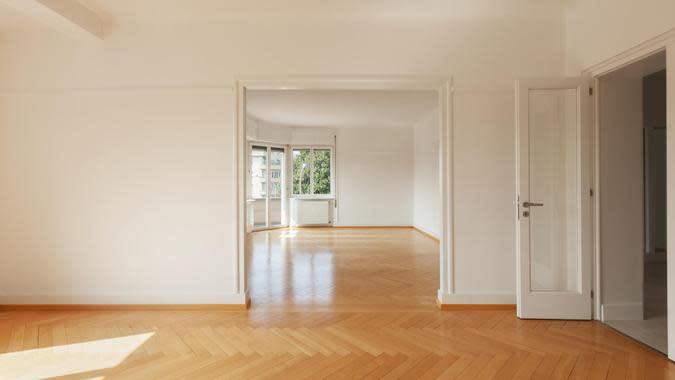
Don't Hold On To a Property for Too Long
The object of flipping houses is to get in, get them fixed up and get out. Don't let yourself get sidetracked. Alessandro Mannino, a home and neighborhood improvement expert with NeighborWho.com said, "The longer you hold on to a property, the more money you spend when you could have made a profit. For instance, while you hold onto a house, you are not collecting rent to cover your costs. You may be responsible for paying a monthly mortgage, utilities and a monthly maintenance. Each extra day that the property remains in your hands, the more money you are spending out of what could be profits."

Don't Go Against the Market
When you buy a home for house flipping, don't make plans that aren't in harmony with the current market. That means knowing how much similar properties are selling for and the characteristics of your target buyers.
"For instance, don't focus on making the interior of an old home into a luxury home and try to sell it in a neighborhood that doesn't have other luxury homes," Mannino said. "You won't beat the market, so it's best to work in unison."
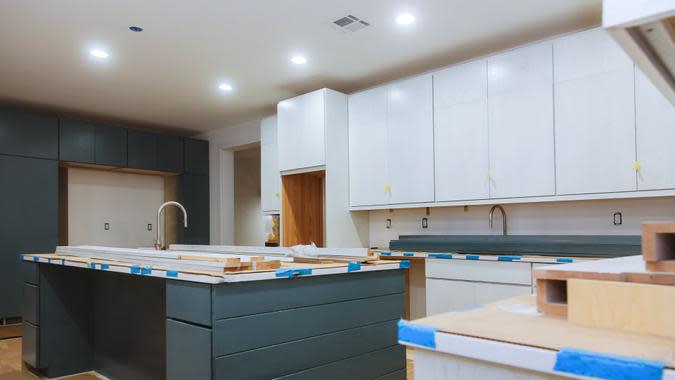
Don't Bite Off More Than You Can Chew
It's easy to watch all of the house-flipping and home renovation programs on television and get inspired to do the same. Enter the field on a small scale, advised Matt Miner, co-principal and real estate broker for the Seattle-based Get Happy at Home team of Coldwell Banker Bain.
"If you aren't a professional flipper and you don't have the knowledge, expertise or contacts, you should definitely start smaller," he said. "The likelihood you will run into issues grows as the project becomes larger."
More From GOBankingRates
This article originally appeared on GOBankingRates.com: 28 House-Flipping Rules You Should Never Break

 Yahoo Finanzas
Yahoo Finanzas 